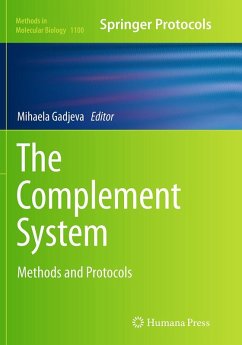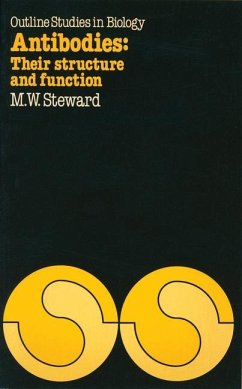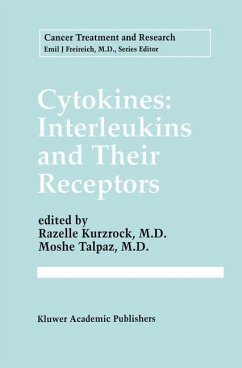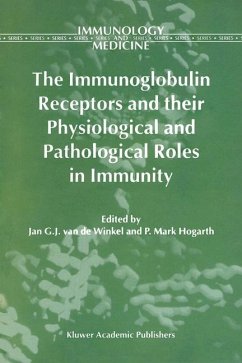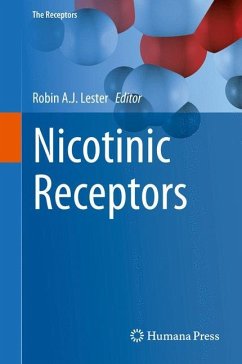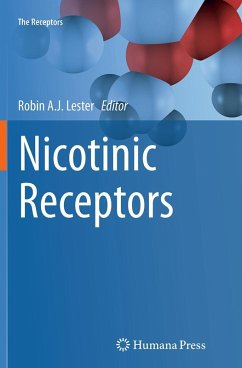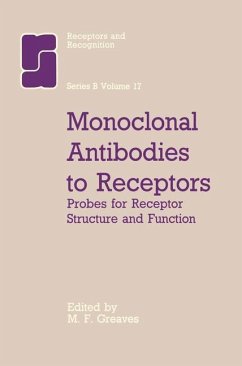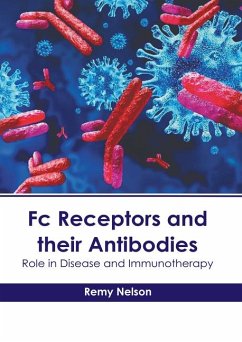
FC Receptors and Their Antibodies: Role in Disease and Immunotherapy
Versandkostenfrei!
Versandfertig in über 4 Wochen
136,99 €
inkl. MwSt.

PAYBACK Punkte
68 °P sammeln!
Fc receptor is a protein which is present on the surface of cells such as macrophages, B lymphocytes, mast cells, neutrophils, basophils and human platelets. Fc receptors allow the cells to connect with antibodies which are attached to the microbe's surface, and help the cells in identifying and eliminating the pathogens. Antibodies (Ab) protect against infectious agents by binding to pathogens and preventing their entry into target cells. They also facilitate the recruitment of Fc-receptor bearing cells that can eliminate pathogens or infected cells by mediating phagocytosis or cytotoxic acti...
Fc receptor is a protein which is present on the surface of cells such as macrophages, B lymphocytes, mast cells, neutrophils, basophils and human platelets. Fc receptors allow the cells to connect with antibodies which are attached to the microbe's surface, and help the cells in identifying and eliminating the pathogens. Antibodies (Ab) protect against infectious agents by binding to pathogens and preventing their entry into target cells. They also facilitate the recruitment of Fc-receptor bearing cells that can eliminate pathogens or infected cells by mediating phagocytosis or cytotoxic activity known as Fc-mediated functions. Antibodies can be classified as neutralizing (nAb) antibodies and non-neutralizing (non-nAb) antibodies. Neutralizing (nAb) antibodies can mediate both functions and non-neutralizing (non-nAb) antibodies are limited to Fc-mediated functions. Non-nAb plays an important role in providing protection against a variety of viral infections, including smallpox, sindbis, yellow fever, ebola, and influenza. It also provides protection from non-viral infections such as tuberculosis and malaria. This book provides comprehensive insights on Fc receptors and their antibodies, as well as their role in disease and immunotherapy. It will serve as a reference to a broad spectrum of readers.




